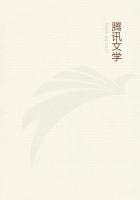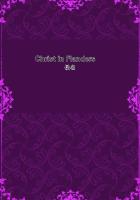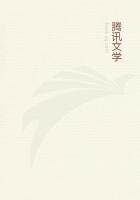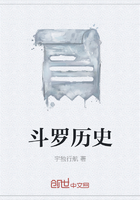110) is some dubious traditionary stuff on the matter.] At dark, however, Wunsch had summons, so truculent in style, he knew what it meant; and answering in words peremptorily, "No" with a like emphasis, privately got ready again, and at midnight disappeared.
Got to Reitwein without accident.
Friedrich found at OEtscher nothing but huts full of poor wounded men, and their miseries and surgeries;--he took shelter, himself, in a hut "which had been plundered by Cossacks" (in the past days), but which had fewer wounded than others, and could be furnished with some bundles of dry straw. Kriele has a pretty Anecdote, with names and particulars, of two poor Lieutenants, who were lying on the floor, as he entered this hut. They had lain there for many hours; the Surgeons thinking them desperate; which Friedrich did not. "ACH KINDER, Alas, children, you are badly wounded, then?""JA, your Majesty: but how goes the Battle?" (Answer, evasive on this point): "Are you bandaged, though? Have you been let blood?""NEIN, EUER MAJESTAT, KEIN TEUFEL WILL UNS VERBINDEN (Not a devil of them would bandage us)!" Upon which there is a Surgeon instantly brought; reprimanded for neglect: "Desperate, say you? These are young fellows; feel that hand, and that; no fever there: Nature in such cases does wonders!" Upon which the leech had to perform his function; and the poor young fellows were saved,--and did new fighting, and got new wounds, and had Pensions when the War ended.
[Kriele, pp. 169, 170; and in all the Anecdote-Books.] This appears to have been Friedrich's first work in that hut at OEtscher.
Here next is a Third Autograph to Finkenstein, written in that hut, probably the first of several Official things there:--THE KING TO GRAF VAN FINKENSTEIN (at Berlin): Third Note.
OETSCHER, "12th August," 1759.
"I attacked the Enemy this morning about eleven; we beat him back to the JUDENKIRCHHOF (Jew Churchyard,"--a mistake, but now of no moment), "near Frankfurt. All my troops came into action, and have done wonders. I reassembled them three times; at length, I was myself nearly taken prisoner; and we had to quit the Field. My coat is riddled with bullets, two horses were killed under me;--my misfortune is, that I am still alive. Our loss is very considerable. Of an Army of 48,000 men, I have, at this moment while I write, not more than 3,000 together; and am no longer master of my forces. In Berlin you will do well to think of your safety. It is a great calamity; and I will not survive it:
the consequences of this Battle will be worse than the Battle itself. I have no resources more; and, to confess the truth, I hold all for lost. I will not survive the destruction of my Country.
Farewell forever (ADIEU POUR JAMAIS).--F." [In orig. "CE 12," no other date (<italic> OEuvres de Frederic, <end italic> xxv. 306).]
Another thing, of the same tragic character, is that of handing over this Army to Finck's charge. Order there is to Finck of that tenor: and along with it the following notable Autograph,--a Friedrich taking leave both of Kingship and of life. The Autograph exists; but has no date,--date of the Order would probably be still OETSCHER, 12th AUGUST; date of the Autograph, REITWEIN (across the River), next day.
FRIEDRICH TO LIEUT.-GENERAL FINCK (at OEtscher or Reitwein).
"General Finck gets a difficult commission; the unlucky Army which I give up to him is no longer in condition to make head against the Russians. Haddick will now start for Berlin, perhaps Loudon too;if General Finck go after these, the Russians will fall on his rear; if he continue on the Oder, he gets Haddick on his flank (SOKRIGT ER DEN HADEK DISS SEIT):--however, I believe, should Loudon go for Berlin, he might attack Loudon, and try to beat him: this, if it succeeded, would be a stand against misfortune, and hold matters up. Time gained is much, in these desperate circumstances.
The news from Torgau and Dresden, Coper my Secretary (COPER MEINSEGRETER," kind of lieutenant to Eichel [See Preuss, i. 349, iii.
442.]) "will send him. You (ER) must inform my Brother [Prince Henri] of everything; whom I have declared Generalissimo of the Army. To repair this bad luck altogether is not possible: but what my Brother shall command, must be done:--the Army swears to my Nephew [King henceforth].
"This is all the advice, in these unhappy circumstances, I am in a condition to give. Had I still had resources, I would have stayed by them (SO WEHRE ICH DARBEI GEBLIEBEN).
"FRIEDRICH"
[Exact Copy, two exact copies, in PREUSS (i. 450, and again, ii. 215).]
All this done, the wearied Friedrich flung himself into his truss of dry straw; and was seen sound asleep there, a single sentry at the door, by some high Generals that ventured to look in. On the morrow he crossed to Reitwein; by to-morrow night, there had 23,000of his fugitives come in to him;--but this is now to be Finck's affair, not his! That day, too (for the Paper seems to be misdated), he signed, and despatched to Schmettau, Commandant in Dresden, a Missive, which proved more fatal than either of the others; and brought, or helped to bring, very bitter fruits for him, before long:--TO LIEUTENANT-GENERAL VON SCHMETTAU (at Dresden).
"REITWEIN, 14th [probably 13th] August, 1759.
"You will perhaps have heard of the Check [L'ECHEC, Kunersdorf to wit!] I have met with from the Russian Army on the 13th [12th, if you have the Almanac at hand] of this month. Though at bottom our affairs in regard to the Enemy here are not desperate, I find Ishall not now be able to make any detachment for your assistance.
Should the Austrians attempt anything against Dresden, therefore, you will see if there are means of maintaining yourself;failing which, it will behoove you to try and obtain a favorable Capitulation,--to wit, Liberty to withdraw, with the whole Garrison, Moneys, Magazines, Hospital and all that we have at Dresden, either to Berlin or else-whither, so as to join some Corps of my Troops.















